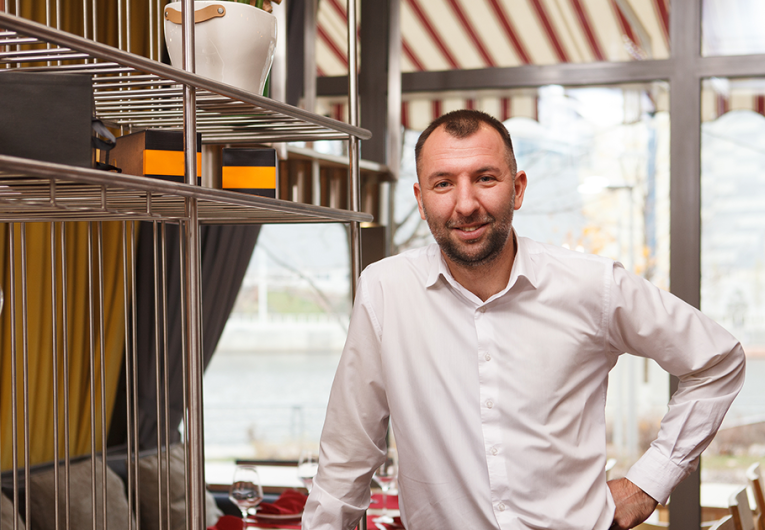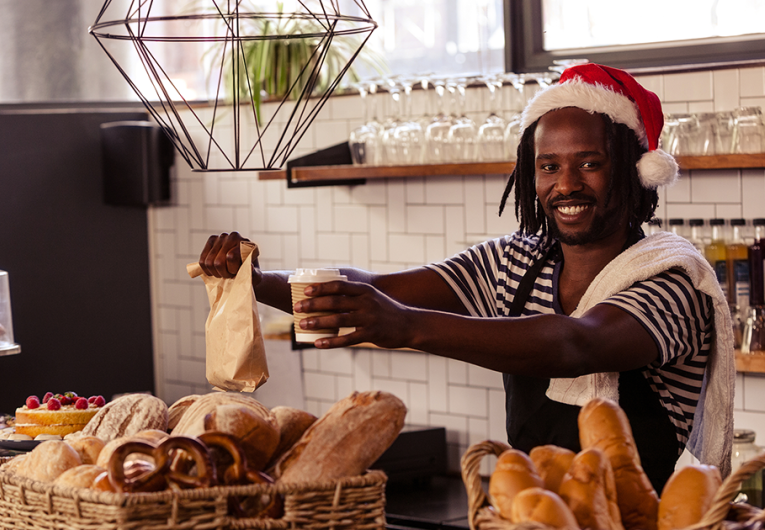
What Turbulent Times Can Teach You About Your Business
It’s happening: More employees are on-site. More customers are shopping in person.
Unfortunately, far too many businesses couldn't weather the economic stress of the past couple of years. According to the Small Business & Entrepreneurship Council, more than 9 million businesses have closed either temporarily or permanently due to Covid.
But there are companies that opened while the world was shutting down and they not only survived—they’re thriving.
Chaos Brewing Company in Joplin, Missouri is one example. Here’s what you can learn from their experience.
Lesson #1: Give People What They Want
Joplin has a lot going for it: a relatively low cost of living, acre upon acre of parks and a growing name in the technology and medical fields.
What it didn’t have was a brewery.
With craft beer sales increasing 21% and gaining a larger share of the $100 billion beer industry, the founders of Chaos pounced on the opportunity.
“The community wanted another place,” says co-founder Dale Clark. “It was a choice to invest in Joplin and to bring something more metropolitan to town.”
The takeaway: Talk to your customers to find out what would make their life better, more fulfilling, or less stressful. They may give an insight or suggestion you wouldn’t have thought of. After all, the customer is always right.
Lesson #2: Push Your Local Angle if You Can
All things being equal, people tend to root for the underdog.
In business, that means the small, independently-operated, local company.
In some ways, Covid spurred a resistance against the big chains and box stores. According to the U.S. Chamber of Commerce , 75% of consumers intend to buy more locally this year.
And Chaos counts on doing the same.
“Everything we can source, we source locally, from honey to the fruit we put in our beer,” says Clark. “We're a local business and if we believe that people should support us, then we need to do the same in return.”
The takeaway: Don’t wait for Small Business Weekend to tout your local roots. That angle resonates with customers, more often than not.
Lesson #3: Ambiance Matters
Sights. Sounds. Scents.
These all play a part in how much we spend—whether shopping in person or online.
Data shows that:
- 75% of website visitors judge a company’s credibility based on its website
- 94% of first impressions are based on the design of a website
- Encouraging shoppers to touch or pick items up can make them more likely to purchase
- Music can cause impulse shoppers to purchase more
- Citrus scents can cause non-impulse shoppers to spend more
That wasn’t lost on Chaos as they were creating a vibe they could call their own. Hand painted murals grace the walls. Handwritten signs with beer on tap. Vats of the latest brews fermenting are just feet away from the bar.
“We’re in a historic building. We just modernized it a bit,” says Frank Ikerd, co-founder. “We want this to be a place that’s not like your typical franchise.”
The atmosphere is playing a part in their success. Sales are up 25% year over year.
The takeaway: Make your atmosphere as inviting as possible. Tinker with your layout, product arrangement and even your playlist. It could make a difference in sales.
Lesson #4: Positivity is Powerful
Nobody would have blamed the founders of Chaos Brewing if they decided to call it quits before their business began. They were open for to-go sales at first. Then restricted to 50% capacity.
“It wasn’t until September of 2020 when it felt like maybe we could have a business that everyone liked,” says Clark.
With bills mounting and cashflow tight, keeping a positive mindset was a challenge they met head on—and for good reason.
Positive thinking is more than “happy talk”. It’s scientifically proven to increase problem-solving skills and give a boost of energy when you might feel beaten down.
“It’s been a bumpy ride, but we’ve learned and grown a lot,” says Ikerd. “Seeing the tap room full of people that are enjoying what you put together, that makes it all worthwhile.”
The Takeaway: Believing in your business’ products and plan can mean more than you think—and it starts with thinking positively.
Lesson #5: Connectivity is Key
Customers come to Chaos for the microbrews. And if they stay for an extra draught, it might be because of the WiFi—an important part of creating that perfect atmosphere mentioned earlier.
“It’s used a lot,” says Clark. “Businesses use it when they rent our space. People are working on med school projects. We use it when we host trivia nights.”
Reliable internet has also made their workday a little easier.
“All of our systems are online. When we’re off-site at a festival I can hook up my hotspot to our POS and it integrates with open tabs here at the brewery. That's only possible with a reliable Internet source.”
The Takeaway: A reliable, fast internet connection is good for customers and good for employees—that means it’s good for your business.
Sources:
Spectrio
Nielsen IQ
The trends, insights, and solutions you need to grow your business.
By signing up, you’re subscribing to our monthly email newsletter, The
Wire. You may unsubscribe at any time.
Your information stays safe with us. Learn more about our privacy
policy.











![[#MSP_NAME#] Logo](/themes/sparklight_business/images/transition-logos/migration-banner-logo-[#MSP_CD#].png)
